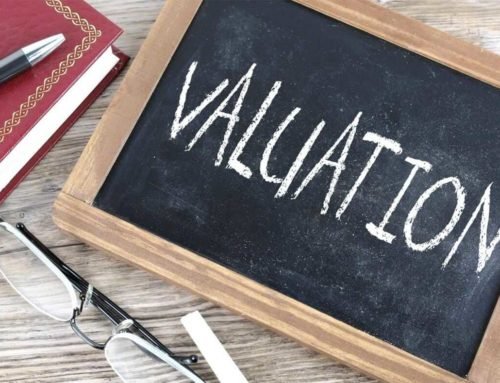What is Pre-Money Valuation?
Pre-money valuation, as the name suggests, refers to assessing the value of a company before it receives external funding such as investment from private investors or initial public offering (IPO). It helps investors gauge the company value and determine a fair percentage of ownership they will be entitled to after committing investment.
After receiving the investment, the company’s value is likely to increase exponentially as it now has access to funds that can be used to expand its business. The new valuation, after the injection of investment, will be called post-money valuation.
Examples of Pre-Money Valuation
It may be hard to understand the concept and importance of pre-money valuation from a definition. So, let’s try to understand it with a few examples.
Example # 1: Pre-money valuation of a house
Let’s first understand the concept and significance of a pre-money valuation with a basic example of a house.
Suppose that your friend owns an old house. He wants to renovate and refurbish the house and sell it for a higher price. But, he does not have the required capital. He presents the idea to you and requests $100,000 in funding for a reasonable share of ownership in the house and its sale proceeds.
The first thing you will do is to independently assess the value of the house before providing funds and demand a fair share. Let’s assume that the house’s present worth is $100,000. You will demand a 50% share in exchange for investing $100,000.
The house owner will also consider the pre-money valuation of the house to determine whether your demand for a 50% share is just and acceptable. Let’s suppose that the house owner accepts your demand to share 50% house ownership.
The house is renovated and refurbished which is then sold for $250,000. The sales proceeds will be equally split as per the agreement. Accordingly, each party will receive a sum of $125,000 from the sale proceeds.
In the above example, the pre-money valuation was an important decision-making tool that helped both the investor and the house owner to determine a reasonable share percentage for each other.
Further, the following formula can be derived from the above example which can be used to estimate the pre-money valuation of a business:
Pre-Money Valuation = (Investment Amount/Equity Stake) – Investment Amount
Example # 2: Pre-money valuation of a start-up
Now, let’s take one step up and understand the concept and significance of the pre-money valuation in a start-up.
Let’s say there is a startup called “NextGen Technologies” that is seeking seed funding from investors. The founders have developed a groundbreaking software product and are in the process of raising capital to further develop and scale their business.
A VC investor is interested in investing $1 million in exchange for a certain percentage of ownership in the company (let’s say 20%). The PwC insightful guide on how to value a start-up business is helpful in understanding how investors estimate the value of a start-up.
Nevertheless, the pre-money valuation formula is as follows:
Pre-Money Valuation = (Investment Amount / Equity Stake) – Investment Amount
If we apply the formula in the above-given example of NextGen Technologies, the outcome will be as follows:
Pre-Money Valuation = ($1,000,000/20%) – $1,000,000 = $4,000,000
The pre-money valuation of NextGen Technologies is estimated at $4 million. This also makes sense because the additional $1m investment will raise the total company’s valuation to $5m (e.g., $4m pre-money plus $1m from investors). Further, if the company is to be sold immediately post-investment, the investor is expected to receive $1m from the sale proceeds based on a 20% shareholding, assuming that all other variables remain constant.
Conclusion
In a nutshell, the pre-money valuation represents the worth of the company’s assets, intellectual property, and potential for growth prior to any infusion of capital. Factors such as the company’s stage of development, market potential, and negotiation dynamics influence this valuation. Pre-money valuation provides a baseline for negotiations between founders and investors and serves as a crucial reference point for investment decisions in the startup ecosystem.



